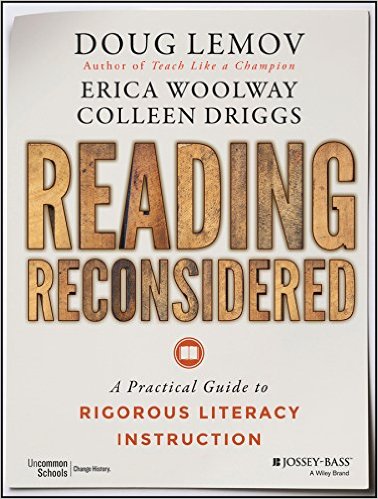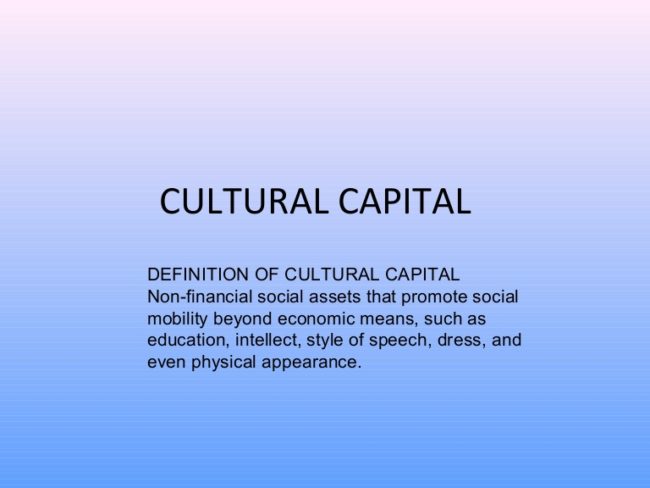05.04.18We Are Writing a Language Arts Curriculum!

Curriculum… for real…
This is kind of an exciting announcement. Maybe a scary one too. My team and I have decided to write a Language Arts (i.e. English) Curriculum.
We’re going to start with the middle grades (4-8) and expand from there. With a little luck we hope to have it ready for schools to use a year from now, though we have a few partner schools piloting parts of it already.
It’s going to be aligned to–but also expand on–a lot of the ideas in Reading Reconsidered. As we build it I am going to be writing about it occasionally here- describing what we’re doing and why- in hopes that it will be useful to others- also to help me process what my team and I are learning.
Today I want to start with some of the reasons why we’re writing our curriculum.
One of the biggest reasons is simply that we don’t think the level of preparation required to make great lessons instead of just good ones every night is doable for most teachers—doubly so when you consider how many preps many teachers have. Triply so when you embrace the idea—as we have—that curriculum needs to be primarily knowledge-driven (this is a term I’ll define in a moment) that part of preparation is research and sourcing of relevant background knowledge.
Teachers need something great to guide their English and Reading lessons every day but the choice of striving for that standard and therefore making their workload unsustainable or doing something B+ is a poor one.
And daily lesson design comes at the cost of other important things: knowing the text deeply, reviewing and practicing the lesson to deliver it perfectly; developing your craft generally; assessing student progress. Better to start with something great, adapt it when you want to, other times focus on how to make students’ writing crisper- or to make David give his best every day or to maybe take the occasional walk or seeing your own kids. Seriously- we should give teachers to tools to do this work as well as it can be done, and for as long as possible.
Our goal is to give teachers something great every day that builds background knowledge for students and that is flexible enough that teachers can adapt it, supplement it, make it their own on the occasions when it is really valuable to plan it just so. That’s one of our themes. Adaptable coordination.
That’s a good argument for quality curriculum. But there are other curricula out there. Why a new one?
One big reason is that we don’t think there is a high quality knowledge driven curriculum that’s written through the eyes of a teacher.
Research tells us that background knowledge is at least as important to reading comprehension as reading ‘skills’ What teachers often assume are skill problems for growing readers are in fact often knowledge problems. Consider this sentence from Laura Ingalls Wilder’s On the Banks of Plum Creek:
In the middle of the week, Ma brought in the washtub and heated water for Mary’s bath, then again for Laura’s bath and again for Carrie’s.
I wrote recently about how this sentence is supposed to tell you that something very special is about to happen. The author lived on the prairie in the late 19th century when people generally took baths once a week—if that often—and almost always on Saturday in anticipation of church on Sunday. Ma “heating” water means Ma feeding wood into the stove from the wood pile and boiling water, lugged in from the well, in a small pot. It’s no small chore.
If you have that background knowledge—the author would have assumed you did since she lived during that era–you know that phrase in the middle of the week signals that something exceptional is happening. It’s a big deal.
So did you make that inference? Would your students? If not, they could practice making a hundred inferences from Charlotte’s Web or Miracle’s Boys and it wouldn’t help them[2]. Nor would reminding them that making an inference is ‘reading between the lines’ or ‘combining what you know with clues in the text.’ It won’t help if they memorize that or even if they chant it. It won’t help them to visualize. Understanding the skill is simple; applying it in context is hard. And only knowledge helps students understand the context.
In being knowledge driven we have sought first of all to be book-based: Our curriculum is based on modular book units. We think books matter. Reading the right books challenges students and arms them with cultural capital- a fact that’s easy to overlook if you go up with lots of cultural capital. We also think books build a relationship between reader and author- coming to understand a narrative voice is a habit you get only from a sustained relationship with a text and a writer.
Since we think everyone’s perfect collection of books is different thought the units are modular. Each book unit is about 6 weeks in length. You can choose any five or six of them, say, to build your curriculum around. Thus as we describe in Reading Reconsidered each school can build it’s own internal canon and allow for inter-textual discussions knowing that there will be a corpus of important books (whatever definition you apply to ‘important’ works) that every student will have read.

Knowledge is the outcome of successful reading and the wellspring that feeds it. Many teachers know this- but how do you change your daily teaching in response?
Our approach is to use four tools in particular:
Knowledge organizers—Each unit starts with a knowledge organizer that specifies and organizes background knowledge that is critical to understand to be able to access the text and that will also be important for students to have ten years from now. This knowledge is reinforced in long –term memory by regular retrieval practice and then applied to the texts students read. One of our first books is Esperanza Rising. The protagonist migrates to California during the 1930s and experiences labor unrest and the immigration of migrants form the Dust Bowl. Topics in our Knowledge Organizer include key facts about the Dust Bowl, vocabulary to describe the labor movement—What is a picket? A strike?—and technical vocabulary students will use to analyze the text: juxtaposition; foreshadowing.
Embedded Nonfiction—Each unit features an extensive series of shorter non-fiction texts—designed to inform students about key topics that can enrich or inform the primary text with depth and nuance. In Esperanza Rising, there’s an article on caste systems and one on gender roles, one on the American Dream and one on the Dust Bowl and migration from the Great Plains, to name a few. These build background knowledge generally about key topics and help bring the text to life in richness and depth.

Embellishments—Deeper understanding and broader context is supported by the addition of smaller artifacts—pictures, diagrams, mini-texts—that provide background about key references in the text. There are short paragraphs on the phrase Mother Nature, examples of Dorothea Lange’s photographs, a drawing of ‘rosary beads’ and pictures of a nun’s ‘habit’ and the topography of area in Mexico where the story begins..
Knowledge-based questioning and knowledge feeding—Questions about the text are often written to reinforce knowledge as much as skills. “How does your understanding of the caste system enhance your understanding of what Miguel means by the ‘river’ between him and Esperanza?” We often use a question as an opportunity to share knowledge with students and ask them to apply it right away. e.g. “A refugee is a person who has been forced to leave their country in order to escape war, persecution, or natural disaster. Are the Okies refugees or migrants do you think?” We ask these questions in lieu of more typical skill-based questions that a teacher might ask because our goal is to both build awareness of the knowledge readers can take form the text to build their knowledge base and to deepen analysis by making it based on substance.
Realistically our obsession with vocabulary is also one of the ways we try to be knowledge driven…. but that obsession is so large that I should give it it’s own blog post.
There are lots of other things we are trying to make unique about our curriculum. One of the other big ones is writing and how it’s used. I’ll talk more about that next time. For now I’ll just note that we do a ton of developmental writing, a lot of read-write-discuss-revise, and balance formative and summative prompts.

I wish you all the best in this endeavor. Will it attempt to cover the standards of the Common Core? One suggestion; Could you align the writing with The Writing Revolution?
thanks! we’ll align to the common core but probably in a ‘long run’ way…. ie in a way that does not presume that to prepare for common core we should organize the curriculum around practicing iterations of the specific questions on the test over and over. we want the book to drive the lesson and think we can ensure over time that the right skills are mastered–through practice and by a long term investment in vocabulary and knowledge and fluency and comfort with complex texts….. this probably deserves a blog post to explain. I’ll put it on the list.
The curriculum we have been waiting for!
Can we pilot it for you at my school here in the uk?
thank you! we’re going to try to figure out whether we can add more schools to the pilot. i’ll disucuss in one of my next blog posts.
This is exciting! There are so many language arts standards. Trying to find activities that are rigorous and engaging takes a lot of time, so any type of help is greatly appreciated.
I hope you give as many examples/ideas to seventh and eighth grade students as you do for fourth through sixth grade srudents since those young adults need a different type of motivation and “cool” factor to keep them engaged.
I’m looking forwarded to seeing what you suggest!
This all sounds great, Doug! But what is the answer to Rick’s question about The Writing Revolution?
Huge fan! I’m the founding Principal of a school and we open this fall. We would be interested in piloting this curriculum. Let me know if we can make this become a reality!
Could not possibly be more excited about this news!!!
Awesome idea. Please include smart, dignified strategies to incorporate ELL development. Shouldn’t be an afterthought .
good point. thanks
Will this curriculum be open source?
not sure yet. we are self funding so it will probably be ‘as low cost as we can make it and still pay people’s salaries’…
Hi Doug, do you think your curriculum will be easily transferable to the UK or will it be grounded in American history/experience/literature? Raises an interesting question about whose knowledge is privileged in a curriculum and is there a ‘communal’ knowledge that has global relevance?
I hope so. But we’ll rely on our colleagues over there to advise us. And yes those are fascinating questions. I am noticing that our first two novels (Esperanza Rising and Chains) are especially “American.” Not all of them will be of course and our goal is to allow for choice so i hope it comes out useful for UK teachers. That’s certainly something we will shoot for!
I absolutely cannot wait for this! Thank you!
This is great news. As a policy wonk/researcher I’m wondering: will this be usable for kids in a self-directed (e.g., online) environment or will it rely on an excellent teacher’s facilitation? And how will you know if it’s more effective than other curricula?
hi, Robin. it presumes a teacher in a classroom. we’d leave it to someone else to imagine some other setting. we’re going to ask our users to share data back ideally- a variety of types from testing outcomes to pre- and post- writing samples. doug
Doug, congratulations. So glad you’re doing this.
I just want to recommend our “junior journalism” curriculum as a wonderful avenue into literacy and background knowledge through fact-based narrative (which is what the best of journalism is). We’ve tried it here in Hudson with 3rd and 4th grades and this year introduced a 12-week program for all of the district’s 5th-graders.
Hi Doug,
I’m excited to see this curriculum when it’s available! I’m curious if you all have specific opinions about curricula already out there that are closest to addressing the needs you cite? Wit and Wisdom? Wheatley? Anything else that I should look at before yours comes out fully?
Hi Doug, I wish you the very best of luck with this venture. I hope that it is going to cover all the standards of the common curriculums. I am also expecting this to be the best writing curriculum
Thank you for this!
Will this curriculum be conducive to a Reader’s Workshop format?
Hi Doug – this is wonderful news. Will you be piloting the program in various schools? We think our school would be a great option!
thanks! you can email us at tlac@uncommonschools.org and we’ll keep you in the loop re piloting.
Hi Doug,
Really good luck with this.
We are just considering how to embark on such a venture at our school in the Uk (all part of our knowledge-rich journey), so would be really keen to see how our journeys might interest/support each other. If you’re interested in seeing what we’ll be doing in a UK school, then feel please get in contact.
Thanks, Dave. Will do. What’s the best way to reach you?